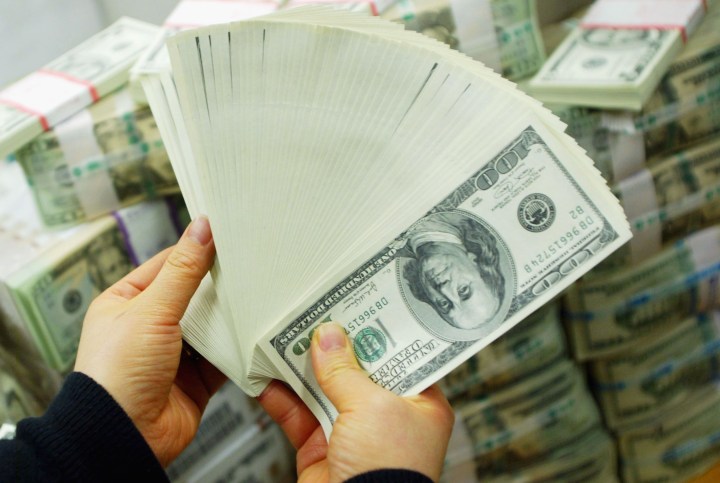
Can money solve a coronavirus-induced recession?

This morning, the Federal Reserve announced it would inject $1.5 trillion into the financial system in an effort to stabilize the economy. Meanwhile, the House of Representatives is preparing to vote on a stimulus bill to fight the economic effects of the new coronavirus.
Marketplace host Kai Ryssdal spoke with Annie Lowrey, staff writer at The Atlantic, about the role of money in this public health crisis, and why Congress hasn’t intervened more despite economic turmoil.
“It’s important to note that we know a tremendous amount about how to fight a recession,” Lowrey said. “The reason that Congress is really struggling is all politics. It’s got nothing to do with this being hard to fight or us not knowing how to fight it.”
Lowrey expects a compromise bill to include “not terribly efficient tax cuts” along with an expansion of unemployment insurance and food stamp programs.
“This is going to turn into a jobs crisis,” Lowrey said. “That’s where these economic measures can help because we want to treat that downstream economic crisis at the same time that we’re dealing with the terrible public health consequences of the novel coronavirus.”
Click the audio player above to hear the interview.
There’s a lot happening in the world. Through it all, Marketplace is here for you.
You rely on Marketplace to break down the world’s events and tell you how it affects you in a fact-based, approachable way. We rely on your financial support to keep making that possible.
Your donation today powers the independent journalism that you rely on. For just $5/month, you can help sustain Marketplace so we can keep reporting on the things that matter to you.


















